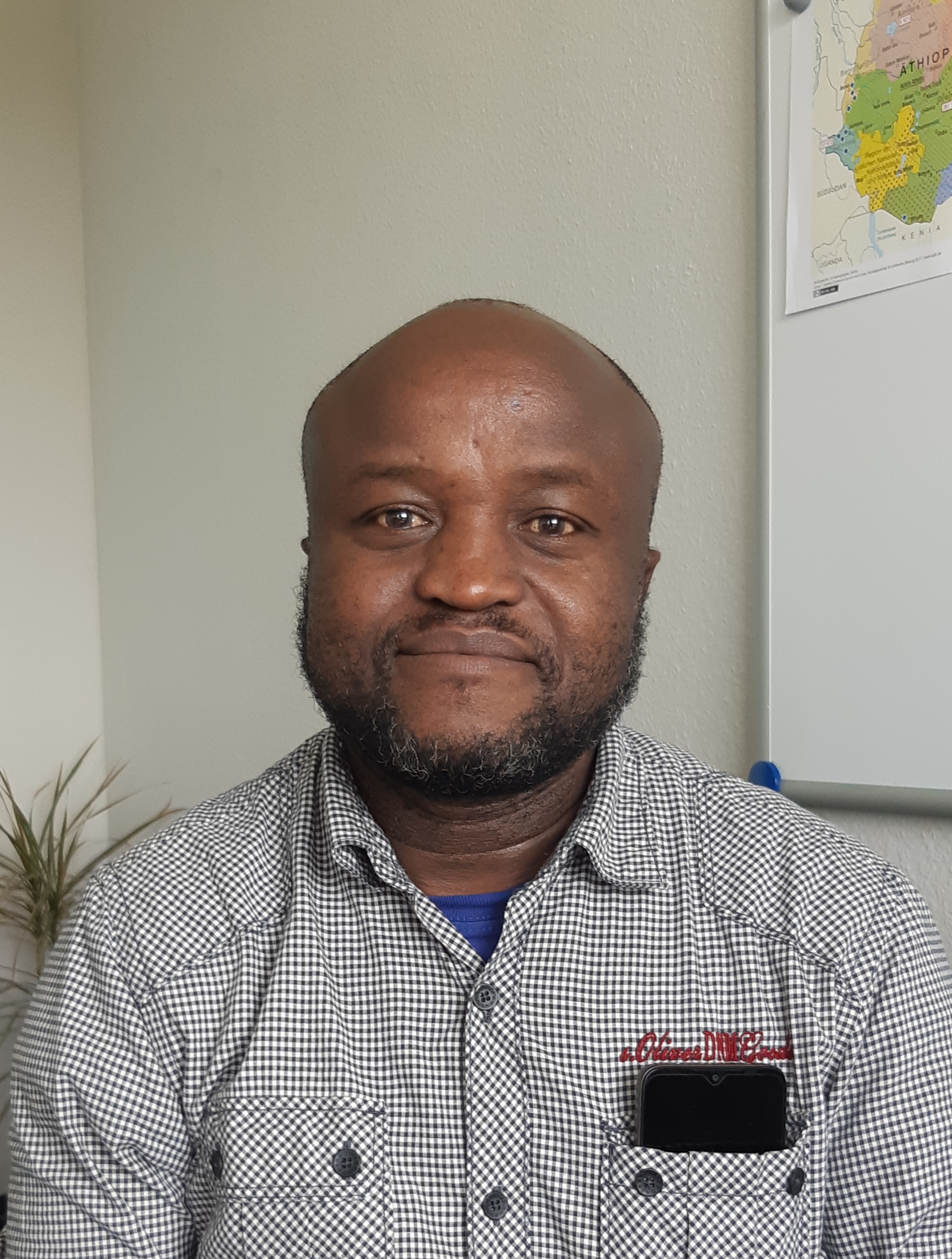
Dr. Michael Owiso
Michael is a member of the faculty in the School of Development and Strategic Studies at Maseno University-Kenya. He is also the Dean of the same school. He has taught subjects in the fields of political science, international relations, and development studies at various universities in Kenya and abroad. He was previously in the humanitarian sector for over 17 years during which he made contributions to the peacebuilding and humanitarian field while working with various organizations.
Current affiliation
- Maseno University
Hosting institute
Contact
- Email: …
Key expertise
- East and Horn of Africa
- Political Science
- Policy Studies
- Migration Studies
- Security
- Peace and Conflict Studies
Profile according to FFVT taxonomy
Fields of research
- Development Research
- Peace And Conflict Studies
- Governance Research
- Human Rights Research
- Migration Research
Scientific topics
- Borders
- Causes Of Displacement
- Civil Society Engagement
- Conflict Mediation
- Economy Of Forced Migration
- Environment And Climate
- Infrastructure Of Flight / Forced Migration
- Integration And Social Participation
- Local And Municipal Refugee Policies
- Migration Routes, Refugees’ Journeys
- National Refugee And Asylum Policies
- Refugee Camp
- Refugee Law
- Return And Deportation
- Transnational Networks
- Work / Labour Market
Disciplines
- Political Sciences
Professional Career
PhD in Political Science, Aalborg University, Denmark
MA in International Relations, United States International University-Africa
BA in Political Science, Catholic University of Eastern Africa
Research profile
Q1. Who are you?
Michael is a member of the faculty in the School of Development and Strategic Studies at Maseno University-Kenya. He is also the Dean of the same school. At the same time, he holds the position of Director, at Odera Akang’o Campus at Maseno University. He is a Senior Visiting Research Fellow position at Kings College, London. He has taught subjects in the fields of political science, international relations, and development studies at various universities in Kenya and abroad. He was previously in the humanitarian sector for over 17 years during which he made contributions to the peacebuilding and humanitarian field while working with various organizations. Michael holds a Bachelor’s Degree in Political Science from the Catholic University of Eastern Africa, an MA in International Relations from the United States International University-Africa, and a PhD in Political Science from Aalborg University in Denmark. He has authored in journals and books and is also a reviewer in journals. His research areas and interests include Inter and Multi-disciplinary research on Migration, refugees, and displaced persons in Africa; the changing landscape of conflict resolution, peacebuilding, and development in relation to state-society relations in Africa; the theory and practice of leadership and security in the world system with a focus on transformative leadership in Africa.
Q2. What was your motivation for applying for the FFVT fellowship? Why Germany?
I have been involved in collaborative research with researchers from Germany and particularly IDOS. This has however been remote and we did not have the opportunity to sit face to face and exchange ideas and write together. I saw this opportunity as one where this dream could come true. I also saw this as an opportunity to exchange and learn from the German research environment while at the same time to let-in the German researchers on the research environment in Kenya.
Q3. What do you expect from the fellowship?
My expectations include meeting with researchers in my field who are based at IDOS and other participating institutions of FVVT to exchange ideas and in this way, grow my network. I also hope to meet researchers from other institutions in Germany including the University of Bonn, the University of Munster as well as other universities engaged in similar research.
Q4. What is the focus of your work, and what is innovative about it? / What are your planned outcomes and activities for the fellowship period? And how do they relate to your FFVT hosting institution/ the FFVT cooperation project?
My work during the fellowship period focuses on Refugee and Host-Community Perceptions of Integration in Kakuma Refugee Camp and Kalobeyei Settlement in Kenya. The work analyses the lived experiences of refugees and hosts in the context of Kenya and hopes to bring new dimensions to refugee management programming and policy. My other piece which I am doing in collaboration with researchers from IDOS and an alumnus of the FFVT Fellowship compares the implementation of the Comprehensive Refugee Response Framework in Ethiopia and Kenya. This is an opportunity to not only collaborate with researchers at IDOS but also with other institutions based in other parts of the globe.